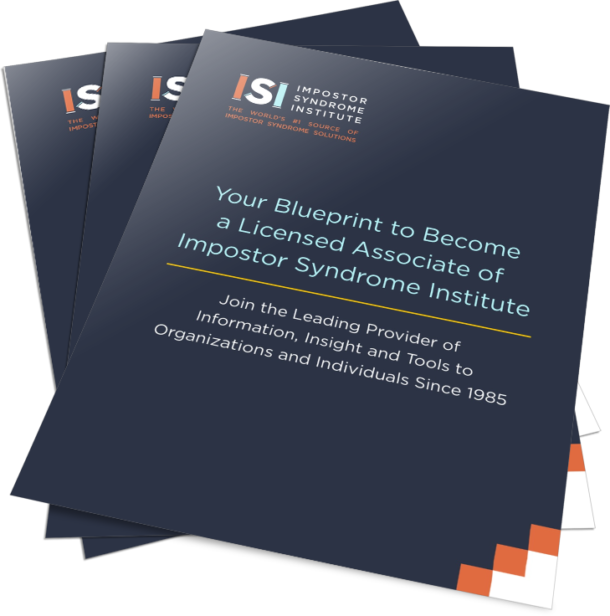It seems every day another successful person reveals they have impostor syndrome.
Today it’s a Brit named Zoella — a huge YouTube star with millions of fans.
Zoella has not asked for my advice. But if she did, here’s what I’d tell her:
1) Normalize impostor syndrome
Stop expecting yourself to feel confident 24/7.
Everyone has moments of doubt and moments of confidence. It’s called life.
Some of the brightest, most talented people on the planet have impostor feelings. So, join the club!
One way to normalize impostor syndrome is to do less “psychologizing” and more contextualizing. In other words…
2) Consider the source
As a huge YouTube star, you may not be an actor, but you are playing a role.
People in creative fields — acting, writing, music, art — are more susceptible to impostor feelings.
Tom Hanks, Tina Fey, Viola Davis, Maya Angelou, and MANY others have talked about their own very normal impostor feelings.
It makes perfect sense considering you’re being judged by subjective standards by people whose job title is professional critic.
Except being an online star means everyone is a critic.

3) Constructive criticism is a gift
It probably doesn’t feel that way. And it’s going to hurt. Especially when you’ve put your heart and soul into something.
You don’t like everyone’s work, and not everyone is going to like yours. Okay, so a lot of people didn’t like your book.
Among all the lame or likely cruel comments, there’s likely to be some helpful information.
Golden nuggets of genuine feedback that you can use to make your next book better. So, keep what you can use and forget the rest.
4) Luck, timing, and effort play a legitimate role in everyone’s success.
As we’ve come to expect, the comments to the Daily Mail article were less than supportive. Ignoring the vicious ones, I was struck by this one:
“You feel like an imposter and doubt yourself because you are doing what anybody with a computer/phone and a camera could do. There is no talent or special skill required and you’ve made millions on just being at the right place at the right time”
If anybody with a computer/phone/camera could attract millions of fans, they’d be doing it. But they’re not because they’re unwilling to put in the work.
As the American business tycoon Armand Hammer once said, “When I work fourteen hours a day, seven days a week, I get lucky.”
Anyone can be lucky. It’s what you do with luck and timing that makes the difference.
5) Try again
So your book got trashed. It sucks, but it happens.
Everyone wants to knock it out of the park on the first attempt.
But unless you are a “one hit wonder,” the first version of anything will almost never be as good as the next version or the one after that.
The key is to try again.
And don’t wait until you feel confident to do it.
When it comes to impostor syndrome, feelings are the last to change.
6) The only way to stop feeling like an impostor is to stop thinking like an impostor.
How do non-impostors think? Review 1-5… often.
You are welcome to reprint this post with the bio below.



